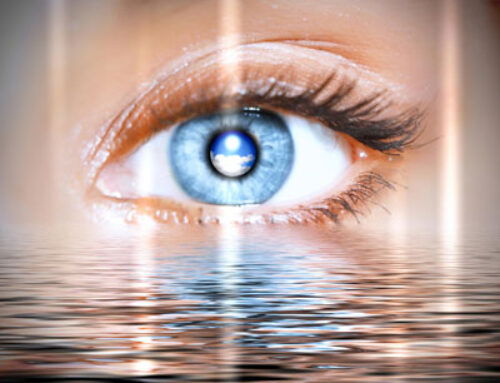In the prologue of my novel Jellyfish Have Eyes, Ricardo reflects on his dead wife and tells her, “If you had been there and seen the jellyfish, Lillian. They have eyes and minds. We have so much to learn from them.”
 Ricardo, a fierce believer in chasing ideas that fascinated him, had gone to La Parguera, Puerto Rico, to study jellyfish eyes (they really do have eyes!). However, in mid-21st century, Ricardo’s time, government support for research required a practical goal, such as direct medical relevance. Since Ricardo’s investigations on jellyfish were for the sake of knowledge alone, the government indicted him for squandering taxpayer funds on irrelevant research. Ricardo, defending his basic research in the ensuing trial, said that his “…observations imply that a jellyfish has a type of brain, or organizing center which functions as a brain…this means that jellyfish have a mind. I would like to point out that these discoveries – still speculations – would never have been made by targeted research. They required curiosity and free-wheeling, destination-free exploration.”
Ricardo, a fierce believer in chasing ideas that fascinated him, had gone to La Parguera, Puerto Rico, to study jellyfish eyes (they really do have eyes!). However, in mid-21st century, Ricardo’s time, government support for research required a practical goal, such as direct medical relevance. Since Ricardo’s investigations on jellyfish were for the sake of knowledge alone, the government indicted him for squandering taxpayer funds on irrelevant research. Ricardo, defending his basic research in the ensuing trial, said that his “…observations imply that a jellyfish has a type of brain, or organizing center which functions as a brain…this means that jellyfish have a mind. I would like to point out that these discoveries – still speculations – would never have been made by targeted research. They required curiosity and free-wheeling, destination-free exploration.”
A review by Joel Shurkin in the Proceedings of the National Academy of Science considered Jellyfish Have Eyes as fiction (which it was) to make the case for basic research.
An extraordinary, recent report found that the jellyfish Cassiopea sleep, or at least have a sleep-like state, catapulting the novel to the edge of reality. (Ricardo didn’t mention in the novel that Cassiopea, perched upside down (their normal position) on the bottom of the mangrove swamp in La Parguera, stung him when he waded barefoot in the shallow water. Since it was daytime, the jellyfish must have been very much awake, but Ricardo never considered that.)
The brain, it’s believed, drives sleep. Doesn’t this imply that jellyfish really do have a brain of sorts, as Ricardo speculated? And if jellyfish can sleep, might not they also have thoughts and memories, in jellyfish terms, again as Ricardo dared to propose?
Does fiction stay fiction when new findings nudge the story towards truth?

A Cassiopea jellyfish rests upside-down on black sand and pulses, rhythmically contracting and relaxing its bell. At night, Cassiopea jellies pulse less frequently — a clue that they’re sleeping, researchers report.
(Source: Washington Post; Photo by JanEaster.com)
Why are animals – jellyfish and other critters – called primitive because they’ve been on Earth so much longer than us? Ricardo didn’t consider jellyfish, with sophisticated eyes and a diffuse nerve network that appears to function as a type of brain – a jellyfish brain, that is – as primitive. After all, jellyfish have survived some 700 million years, which is a lot of evolutionary time to develop novel tricks of the trade. No wonder they sleep; that’s exhausting!
We’d be smart to learn from jellyfish, whether they’re asleep or awake, as Ricardo urged. I bet they have a lot more to teach us.






Leave A Comment